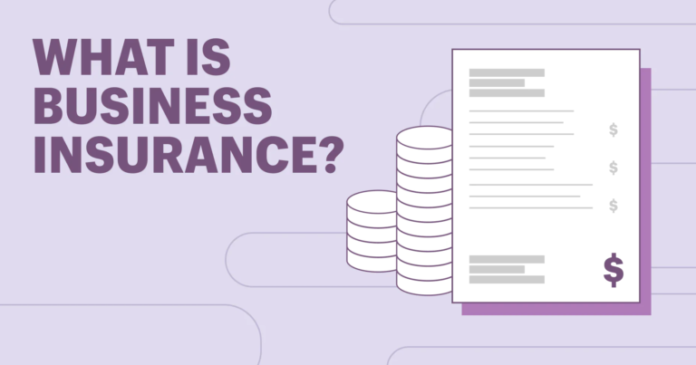What is Business Insurance
The inclusion of business insurance protects organizations from losses resulting from events that may occur in the normal course of business. Organizations can access various types of protection, including coverage for property damage, legal liability, and employee-related risks.
Organizations evaluate their protective requirements based on potential threats, which can vary depending on the type of environment in which the organization operates.
KEY TAKEAWAYS
- Business insurance refers broadly to a category of protection coverage intended for purchase by organizations rather than individuals.
- Organizations seek insurance to cover anticipated damage to property, protect against claims, or address policy issues.
Business protection accounts for a significant portion of the U.S. property setback protection industry and includes various insurance products referred to as “business lines.
Figuring out Business Insurance
Entrepreneurs need to carefully evaluate their business protection requirements, as they may face greater private financial exposure in the event of a misfortune. If an entrepreneur doubts the individual’s ability to effectively assess business risk and the need for inclusion, they should collaborate with a qualified, seasoned, and licensed insurance broker. Your state’s division of protection or the National Association of Insurance Commissioners can provide you with a list of authorized specialists in your state.
These inclusions, also known as business lines insurance, comprise property and casualty protection products for organizations. The Insurance business line helps maintain the expected momentum of the economy by protecting organizations from potential losses that they cannot afford to bear alone. This protection allows businesses to operate in situations where, without it, doing so would be too dangerous.
Sorts of Business Insurance
A few types of business protection that entrepreneurs should consider seriously include the following:
Proficient Liability Insurance
Proficient risk protection ensures safeguards against carelessness, guaranteeing that outcomes result from missteps or failure to perform. There is no single expert obligation that fits all cases for inclusion. Each sector has its own noteworthy concerns that need to be addressed.
Property Insurance
Property protection safeguards gear, signage, stock, and furniture against fire, storms, or theft. Regardless, it does not apply to events of mass annihilation such as floods and earthquakes. Should your area be at risk for these problems, you will need a different approach. Another special case involves private property that has an exceptionally high value and is expensive. This is usually covered by purchasing an addition to the policy known as a “rider.” In the event of a case, the property insurance contract will reimburse the policyholder for either the actual value of the damage or the replacement cost to remedy the situation.
Locally established Businesses
Mortgage holder’s approaches don’t cover locally established organizations like business property protection covers organizations. In the event that you’re working a locally established business, ask about extra inclusion for hardware and stock.
Item Liability Insurance
If your business produces items for sale, having item responsibility protection is crucial. Due to damages caused by its products, any business can find itself named in a claim. In such cases, item risk protection safeguards a business.
Vehicle Insurance
All vehicles used for business purposes should have full insurance coverage. Regardless, organizations should protect against external harm; however, comprehensive collision protection will also cover the vehicle in case of an accident. Workers who use their own vehicles for business purposes will be covered by their personal insurance in the event of an accident. A noteworthy exception is when a person is delivering goods and services for a fee, which includes delivery personnel.
Business Interruption Insurance
Business interference (or continuation) strategies serve as a form of protection, especially for organizations that need a physical space to operate, such as retail stores or manufacturing facilities. Business interference protection compensates a business for lost wages during instances that disrupt the usual activities of the business.
The Essentials of Corporate Finance and Accounting
No matter what your learning style is, grasping the ins and outs of corporate finance and bookkeeping becomes easier when you have access to 183,000 online video courses. Udemy gives you the option to learn bookkeeping terminology and how to prepare financial reports and analyze sales. Each course also features new increments that are consistently distributed and comes with a 30-day unconditional guarantee. Get to know Udemy and become a member today.




















